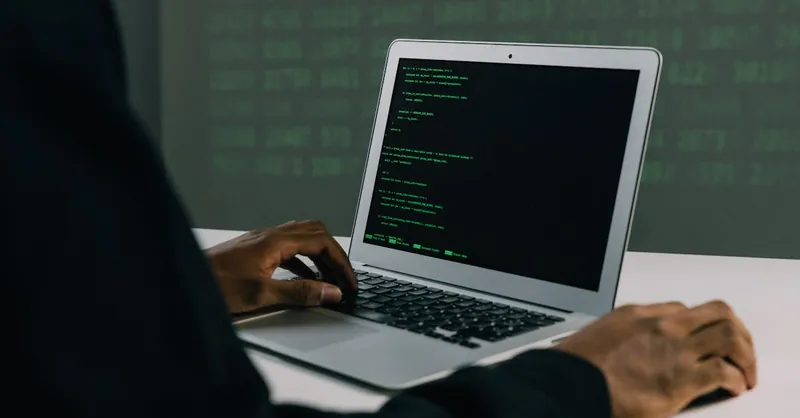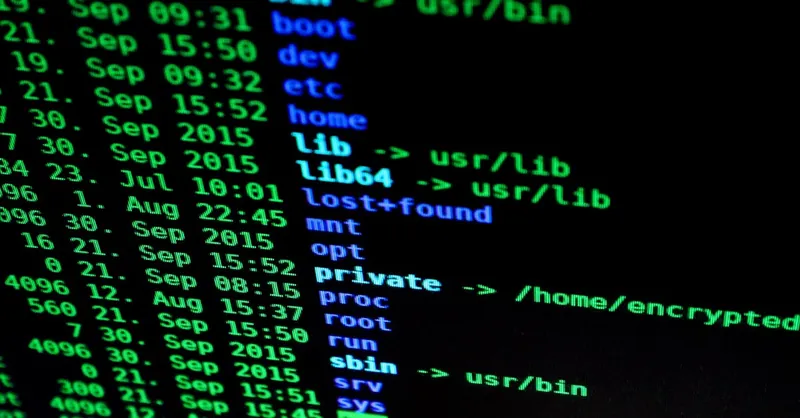Building a Career in Cybersecurity: A Beginner’s Roadmap
Category: Ethical Hacking
Kickstart Your Cybersecurity Career with Confidence
Entering the cybersecurity field can be both exciting and overwhelming, especially for aspiring ethical hackers who are just starting out or looking to deepen their knowledge. If you've landed here, chances are you're eager to understand how to transform your passion for hacking and security into a rewarding career path. You may be wondering about the necessary skills, certifications, and real-world experience required to break into the industry or advance your current standing. This guide is tailor-made for you — a beginner hacker hungry for practical insights and clear direction. Unlike generic articles that overwhelm you with jargon or scattershot advice, this post maps out a strategic, step-by-step blueprint addressing foundational knowledge, essential tools, and career milestones specific to ethical hacking and cybersecurity. Read on to discover actionable guidance on education paths, skill-building, networking, and certifications that employers actually want. Whether you’re starting from scratch or refining your expertise, this article will help you navigate the complexities of cybersecurity careers with confidence and clarity.
- Kickstart Your Cybersecurity Career with Confidence
- Understanding Cybersecurity: Key Concepts and Job Roles
- Essential Technical Skills for Ethical Hackers
- Educational Pathways and Certifications
- Building Practical Experience Through Labs and Projects
- Scripting and Automation for Security Tasks
- Navigating the Cybersecurity Job Market
- Networking and Community Engagement: Accelerate Your Cybersecurity Growth
- Advanced Learning and Specializations in Cybersecurity
- Staying Updated with Emerging Threats and Technologies
- Ethics and Legal Considerations for Ethical Hackers
Understanding Cybersecurity: Key Concepts and Job Roles
Before diving deeper into a cybersecurity career, it’s crucial to familiarize yourself with the core principles and terminology that form the backbone of the industry. Cybersecurity revolves around protecting computer systems, networks, and data from unauthorized access, damage, or theft. This is achieved through a blend of preventive measures, threat detection, and response strategies. Essential concepts include confidentiality, integrity, and availability—often referred to as the CIA triad—which ensure data is protected, accurate, and accessible only to authorized users. Other foundational terms like vulnerabilities, threats, exploit, and risk management will become part of your everyday vocabulary as you grow in the field.
Equally important is understanding the variety of specialized job roles available in cybersecurity. Each role focuses on different aspects of defending digital assets, offering diverse career paths depending on your interests and skills:
- Ethical Hacker (Penetration Tester) – Simulates cyber attacks to identify security weaknesses before malicious hackers can exploit them. Requires strong technical knowledge of networks, systems, and scripting.
- Security Operations Center (SOC) Analyst – Monitors network traffic and security alerts to detect and respond to cyber incidents in real-time. This role demands keen analytical skills and familiarity with security monitoring tools.
- Incident Responder – Leads the containment, eradication, and recovery efforts during and after security breaches. Being detail-oriented and calm under pressure is vital here.
- Security Engineer – Designs and implements security solutions to safeguard infrastructure and applications, often involving firewalls, intrusion detection/prevention systems, and encryption.
- Forensic Analyst – Investigates cybercrimes by analyzing digital evidence to support legal proceedings or internal investigations.
- Governance, Risk, and Compliance (GRC) Specialist – Ensures organizations follow cybersecurity policies, laws, and regulations, minimizing legal and financial risks.
By grasping these key concepts and roles, you’ll gain clarity on where you might fit in the expansive cybersecurity landscape, empowering you to target the skills and certifications that align best with your career goals.

Image courtesy of Tima Miroshnichenko
Essential Technical Skills for Ethical Hackers
To build a successful career as an ethical hacker, mastering a core set of technical skills is non-negotiable. These competencies serve as the foundation for identifying, analyzing, and mitigating security vulnerabilities effectively. Here are the key skill areas every aspiring ethical hacker should prioritize:
1. Networking Fundamentals
Understanding how networks operate is crucial since almost all cyber attacks exploit network vulnerabilities. You need to be fluent in networking concepts such as TCP/IP protocols, OSI model layers, subnetting, firewalls, VPNs, and routing mechanisms. A deep grasp of how data flows across networks enables you to detect weaknesses and craft effective penetration testing strategies.
2. Operating Systems: Linux and Windows
A proficient ethical hacker must be comfortable navigating and using multiple operating systems, with a particular focus on Linux and Windows. Linux distributions like Kali Linux or Parrot OS are especially favored in the ethical hacking community for their pre-installed security tools. Meanwhile, understanding Windows internals, including file systems, registry, and PowerShell scripting, is key since Windows remains the most widely used OS in corporate environments.
3. Scripting and Programming Languages
Automating tasks, writing exploits, and analyzing malware all demand knowledge of scripting and programming. Python is the industry’s go-to language due to its simplicity and extensive cybersecurity libraries. Learning Bash scripting is also valuable for automating repetitive tasks in Linux environments. Additional languages such as JavaScript, Ruby, or even C/C++ can deepen your capability to understand sophisticated vulnerabilities.
4. Understanding Vulnerabilities and Exploits
An ethical hacker must be adept at recognizing various types of vulnerabilities—including SQL injection, cross-site scripting (XSS), buffer overflows, and privilege escalation. This skill involves not just theoretical knowledge but practical experience with tools like Metasploit, Burp Suite, and Nmap for scanning, exploitation, and reconnaissance.
By solidifying these essential technical skills, you position yourself as a versatile and effective ethical hacker ready to tackle real-world cybersecurity challenges. These skills also form the backbone of many professional certifications, setting you apart in a competitive job market.

Image courtesy of Matias Mango
Educational Pathways and Certifications
Embarking on a career in cybersecurity requires a solid educational foundation paired with relevant certifications that validate your skills and knowledge. Fortunately, there are multiple educational pathways tailored to different learning styles, schedules, and career goals. Whether you choose a formal degree program, immersive bootcamp, or self-directed learning, understanding the options helps you chart an efficient path into ethical hacking and cybersecurity roles.
Formal Degrees
Pursuing a bachelor’s degree in cybersecurity, computer science, or information technology offers comprehensive theoretical and practical knowledge. These programs often cover subjects like network security, cryptography, and software engineering, building a strong foundation for ethical hacking careers. Additionally, degrees from accredited institutions can open doors to entry-level positions and internships with reputable organizations. For those seeking further specialization, a master’s degree or specialized cybersecurity programs can deepen expertise and increase job competitiveness.
Bootcamps and Practical Training
Cybersecurity bootcamps provide a fast-tracked, hands-on learning experience that focuses on industry-relevant skills such as penetration testing, digital forensics, and incident response. These intensive courses—ranging from a few weeks to several months—are designed to prepare beginners for immediate job readiness. Bootcamps emphasize real-world labs, simulations, and collaborative projects, making them ideal for those looking to switch careers or accelerate skill acquisition without committing to a multi-year degree.
Self-Learning Resources
The cybersecurity community offers a wealth of self-learning resources including online tutorials, free courses, YouTube channels, and interactive platforms like TryHackMe and Hack The Box. Self-directed learners can build foundational skills in networking, programming, and ethical hacking through structured study plans tailored to their pace and goals. Engaging with forums, blogs, and open-source projects also helps develop problem-solving skills and stay updated on the latest attack vectors and defenses.
Must-Have Certifications for Beginners
Certifications are essential credentials that demonstrate your cybersecurity expertise to employers. For beginners, the following certifications are highly recommended:
- CompTIA Security+ – Covers fundamental cybersecurity concepts including threat management, cryptography, identity management, and risk mitigation. It is widely recognized and an excellent starting point for beginner ethical hackers.
- Certified Ethical Hacker (CEH) – Focuses specifically on penetration testing methodologies and ethical hacking tools. CEH establishes a baseline for hands-on skills to identify system vulnerabilities legally and responsibly.
- Cisco’s CCNA Security – Ideal for those interested in network security, this certification validates your ability to secure Cisco networks and infrastructure.
Advanced Certifications for Career Growth
Once you have gained foundational knowledge and experience, advancing to more specialized certifications boosts your credibility and career prospects:
- Offensive Security Certified Professional (OSCP) – A rigorous, practical certification highly respected in the penetration testing community.
- Certified Information Systems Security Professional (CISSP) – Ideal for those aiming at senior cybersecurity roles with a broader security management focus.
- GIAC Certifications (e.g., GCIA, GPEN) – Specialized credentials covering intrusion analysis, penetration testing, and other advanced security domains.
Choosing the right educational route and certifications aligned with your goals will accelerate your cybersecurity career progression, enhance your technical capabilities, and set you apart in a competitive job market. Prioritize continuous learning through certification renewals and emerging technology trends to stay ahead as a successful ethical hacker.

Image courtesy of RDNE Stock project
Building Practical Experience Through Labs and Projects
No matter how much theoretical knowledge or certifications you acquire, hands-on practice remains the cornerstone of mastering cybersecurity and ethical hacking. Building practical experience allows you to apply concepts in real-world scenarios, sharpen problem-solving abilities, and gain confidence in your skills. One of the most effective ways to achieve this is by setting up home labs, engaging with online hacking platforms, and working on real-world projects.
Setting Up Your Home Lab Environment
Creating a personal cybersecurity lab at home is an excellent way to experiment safely without risking production systems. Your lab should ideally include:
- Multiple virtual machines (VMs) running diverse operating systems such as Kali Linux, Windows Server, and vulnerable distributions like Metasploitable.
- Tools for network sniffing, vulnerability scanning, and exploitation, such as Wireshark, Nmap, Metasploit, and Burp Suite.
- Controlled network environments to simulate attacks, test defenses, and understand traffic flows.
Regularly practicing attacks and defenses in a controlled lab helps translate theory into actionable skills, enabling you to troubleshoot security issues more effectively during assessments or incident response.
Leveraging Online Platforms for Realistic Challenges
Online platforms like TryHackMe and Hack The Box have revolutionized how beginners and advanced ethical hackers can gain practical experience. These platforms offer a vast library of structured learning paths, capture the flag (CTF) challenges, and simulated environments mimicking real-world cyberattacks. Some key benefits include:
- Step-by-step walkthroughs for beginners to understand attack methodologies.
- Exposure to varied hacking scenarios including web app exploitation, binary analysis, and network penetration testing.
- Community support and discussion forums for collaborative learning and problem-solving.
- Opportunities to experiment with the latest hacking tools and techniques safely.
Many employers now highly value experience gained on these platforms, often considering it equivalent to real-world project exposure.
Engaging in Real-World Projects and Open Source Contributions
Beyond labs and simulated environments, working on real-world cybersecurity projects can dramatically improve your resume and practical abilities. Consider:
- Participating in bug bounty programs offered by platforms like HackerOne and Bugcrowd to legally find and report vulnerabilities.
- Contributing to open source security tools or documentation, enhancing your understanding and community presence.
- Collaborating on security audits or threat assessments for small businesses or nonprofits willing to engage ethical hackers in training.
Such experiences demonstrate initiative, practical knowledge, and a proactive mindset—qualities highly sought after in cybersecurity professionals.
By combining home labs, online platforms, and real-world projects, you create a comprehensive hands-on learning ecosystem that accelerates your growth as an ethical hacker. This practical approach not only deepens your technical skills but also prepares you for the dynamic challenges faced by cybersecurity experts today.

Image courtesy of Antoni Shkraba Studio
Scripting and Automation for Security Tasks
In the fast-paced world of cybersecurity, scripting and automation play a pivotal role in enhancing efficiency and accuracy during security assessments and incident response. For ethical hackers and security professionals, mastering scripting languages like Python and Bash is essential to automate repetitive tasks, parse extensive log files, and streamline both offensive and defensive operations.
Python, known for its readability and extensive libraries such as Scapy and Requests, empowers you to write custom scripts for vulnerability scanning, data extraction, and even automated exploitation. With Python, you can rapidly develop tools to analyze network traffic, automate password attacks, or extract indicators of compromise from logs. Meanwhile, Bash scripting is invaluable in Linux environments for automating routine tasks like log file analysis, system monitoring, and batch execution of security tools. The simplicity of combining Bash with native Unix commands (like grep, awk, and sed) allows ethical hackers to create powerful automation workflows directly on their Linux machines.
By integrating scripting into your cybersecurity toolkit, you can:
- Automate comprehensive security assessments by chaining multiple tools and commands, saving valuable time while ensuring consistency.
- Parse and analyze large datasets, such as firewall logs or intrusion detection system alerts, to identify suspicious patterns that could indicate attacks.
- Develop custom defense mechanisms like automated responses to detected threats or real-time alerting systems.
- Simulate complex attack scenarios using scripted payload delivery or automated exploitation, improving penetration testing effectiveness.
Building proficiency in scripting languages not only boosts your productivity but also deepens your understanding of how security tools function internally, setting you apart as a skilled ethical hacker capable of tackling modern cybersecurity challenges with agility and innovation.

Image courtesy of Antoni Shkraba Studio
Navigating the Cybersecurity Job Market
Breaking into the cybersecurity field requires more than just technical expertise—it demands a strategic approach to job hunting, resume building, and interview preparation tailored to the unique expectations of cybersecurity employers. Understanding how to effectively present your skills and experience can significantly increase your chances of landing your desired role, whether you are a beginner or transitioning from another IT discipline.
Crafting an Impactful Cybersecurity Resume
Your resume is often the first impression you make on potential employers, so it’s essential to highlight relevant skills, certifications, and hands-on projects that demonstrate your value as a cybersecurity professional. When writing your resume:
- Focus on specific cybersecurity tools and techniques you have mastered, such as penetration testing frameworks, scripting languages, or security monitoring systems.
- Include measurable achievements, like successful vulnerability assessments, incident responses, or participation in recognized capture-the-flag (CTF) competitions.
- Mention relevant certifications prominently, such as CompTIA Security+, CEH, or OSCP, to validate your expertise.
- Tailor your resume to match the job description by using keywords commonly found in cybersecurity role postings, boosting your visibility through Applicant Tracking Systems (ATS).
Mastering the Cybersecurity Interview Process
Preparing for cybersecurity interviews involves demonstrating both your technical prowess and problem-solving mindset. Interviewers often assess your ability to think like an attacker while adhering to ethical boundaries. To excel:
- Review fundamental concepts and practical scenarios covering networking, cryptography, threat modeling, and incident handling.
- Practice common technical questions, including those related to penetration testing methodologies, security protocols, and mitigation strategies.
- Prepare to discuss your hands-on experiences, such as lab projects, bug bounty programs, or real-world challenge platforms like Hack The Box.
- Be ready for behavioral questions that evaluate your teamwork, communication skills, and adaptability under pressure—critical traits in cybersecurity roles.
Understanding Employer Expectations in Cybersecurity Roles
Employers look for candidates who combine technical knowledge with critical thinking, continuous learning, and ethical integrity. Key expectations include:
- Staying current with evolving cyber threats and security technologies through ongoing education and certification.
- Demonstrating a proactive approach to identifying vulnerabilities and mitigating risks before incidents occur.
- Showing strong communication skills to translate complex security concepts to non-technical stakeholders.
- Upholding ethical standards, especially in roles like ethical hacking and penetration testing, where trustworthiness is paramount.
By aligning your job search strategy with these tips and focusing on continuous improvement, you can confidently navigate the competitive cybersecurity job market and secure positions that match your skills and ambitions.

Image courtesy of cottonbro studio
Networking and Community Engagement: Accelerate Your Cybersecurity Growth
Building a successful career in cybersecurity extends far beyond technical skills and certifications—it thrives on active networking and community engagement. Joining cybersecurity communities and participating in professional events connects you with like-minded individuals, mentors, and industry leaders who can offer valuable insights, opportunities, and support throughout your ethical hacking journey.
Why Networking Matters in Cybersecurity
Cybersecurity is an ever-evolving field shaped by rapid technological advancements and emerging threats. Engaging with the community helps you:
- Stay updated on the latest attack vectors, defense strategies, and industry trends.
- Gain access to exclusive job openings, internship opportunities, and mentorship programs.
- Exchange knowledge and problem-solving approaches through forums, chat groups, and social media platforms.
- Build your professional reputation by sharing your own projects and contributing to discussions, which can attract potential employers or collaborators.
Key Ways to Engage with the Cybersecurity Community
-
Join Online Communities and Forums
Platforms like Reddit’s r/netsec, Stack Exchange’s Information Security site, and dedicated Discord servers provide an interactive space to ask questions, share experiences, and learn from experts at all levels. -
Attend Conferences and Meetups
Participating in industry conferences such as DEF CON, Black Hat, and local cybersecurity meetups exposes you to cutting-edge research, hands-on workshops, and personal networking with professionals. These events often include CTF (Capture The Flag) competitions, presentations, and vendor showcases, offering both learning and networking avenues. -
Participate in Capture The Flag (CTF) Competitions
CTF events simulate real-world hacking challenges that test your skills in a competitive yet collaborative environment. Regularly engaging in CTFs enhances your practical expertise, sharpens problem-solving abilities, and connects you with passionate hackers around the globe. -
Contribute to Open Source and Collaborative Projects
Getting involved in open source security tools or community-driven initiatives demonstrates your commitment and allows you to gain visibility within the cybersecurity ecosystem.
By immersing yourself in cybersecurity networks and community activities, you not only accelerate your learning curve but also open doors to mentorship, collaborations, and career-defining opportunities that can fast-track your growth as an ethical hacker. Prioritize building these relationships early in your career to stay motivated, informed, and connected in this dynamic industry.

Image courtesy of Matheus Bertelli
Advanced Learning and Specializations in Cybersecurity
As you gain foundational expertise and practical experience in ethical hacking, deepening your knowledge through advanced learning and specialization becomes essential for career growth and distinction in the cybersecurity field. Cybersecurity is a vast and continuously evolving domain, and honing your skills in specific niches not only enhances your technical prowess but also aligns you with high-demand roles that offer competitive salaries and challenging opportunities.
Popular Specializations for Career Advancement
Focusing on one or more of these advanced areas can position you as an expert capable of addressing complex security challenges:
-
Penetration Testing
Delve deeper into offensive security techniques by mastering advanced exploitation methods, custom payload development, and red team operations. This specialization often requires certifications like OSCP and involves simulated attacks to rigorously evaluate an organization’s security posture. -
Malware Analysis and Reverse Engineering
Gain expertise in dissecting malicious code to understand infection vectors, payloads, and obfuscation methods. This niche demands strong programming skills and knowledge of assembly language, debuggers, and sandbox environments to uncover malware behaviors and develop effective countermeasures. -
Cloud Security
With increasing cloud adoption, securing cloud infrastructures, services, and applications is paramount. This specialty covers areas such as identity and access management (IAM), cloud architecture risks, and compliance, often requiring familiarity with platforms like AWS, Azure, or Google Cloud and certifications like CCSK or AWS Certified Security Specialty. -
Threat Hunting and Incident Response
Advance your capabilities in proactively searching for threat indicators within networks and systems, identifying ongoing attacks, and managing incidents effectively. This focus combines deep forensics, anomaly detection, and rapid mitigation strategies, crucial for minimizing damage during cyber breaches. -
Security Architecture and Engineering
Focus on designing robust security frameworks that integrate hardware, software, and policies. Specialized knowledge in cryptography, secure system design, and risk assessment enables you to build resilient infrastructures against emerging threats.
Strategies for Deepening Expertise
To successfully specialize, combine continuous education with real-world application:
- Pursue advanced certifications and vendor-specific credentials aligned with your chosen niche.
- Engage in research and development projects, contributing to innovative tools or threat intelligence.
- Participate in specialized training programs, workshops, and conferences that provide exposure to the latest techniques and insights.
- Seek mentorship from experienced professionals in your area of interest to gain guidance and insider knowledge.
By channeling your learning toward a defined cybersecurity specialty, you enhance your career trajectory, making yourself an indispensable asset to employers seeking expert skills in protecting today’s complex digital ecosystems.

Image courtesy of Antoni Shkraba Studio
Staying Updated with Emerging Threats and Technologies
In the rapidly evolving world of cybersecurity, staying updated with emerging threats and technologies is crucial to maintaining relevance and effectiveness as an ethical hacker. Cyber attackers continuously develop sophisticated techniques, making it essential for professionals to proactively monitor the cybersecurity landscape and adapt their skillsets accordingly.
Strategies to Keep Your Skills Relevant
-
Follow Security News and Threat Intelligence Sources
Regularly consume content from reputable cybersecurity news sites such as KrebsOnSecurity, ThreatPost, Dark Reading, and The Hacker News. Monitoring these sources helps you stay informed about the latest vulnerabilities, data breaches, and evolving attack patterns. Additionally, subscribe to threat intelligence feeds and advisories from organizations like US-CERT or MITRE ATT&CK to track active threats and attacker techniques. -
Read Research Papers and Technical Blogs
Delve into detailed analyses from cybersecurity researchers by exploring whitepapers, vulnerability disclosures, and blog posts from security firms like CrowdStrike, FireEye, or Cisco Talos. Keeping up with academic and industry research reveals new defensive methodologies, exploit techniques, and zero-day vulnerabilities. This practice sharpens your analytical abilities and keeps you informed on cutting-edge developments. -
Engage in Continuous Education and Training
The cybersecurity field demands lifelong learning. Enroll in advanced online courses, webinars, and workshops offered by platforms like SANS Institute, Cybrary, or Pluralsight to deepen your expertise in emerging technologies such as cloud security, zero trust architectures, and AI-driven defense systems. Maintaining and renewing certifications ensures your skills remain aligned with current industry standards. -
Participate in Security Communities and Conferences
Active participation in cybersecurity forums, mailing lists, and conferences provides real-time insight into emerging threats and defense innovations. Events like Black Hat, DEF CON, and RSA Conference showcase the latest research, tools, and strategies directly from industry experts and hackers. Engaging with peers encourages knowledge exchange and fosters adaptability to technological changes.
By systematically applying these strategies, you not only future-proof your cybersecurity career but also position yourself as a knowledgeable ethical hacker capable of defending against the most advanced threats. Staying informed and continuously evolving your skills are key competitive advantages in the dynamic, high-stakes world of cybersecurity.

Image courtesy of Pixabay
Ethics and Legal Considerations for Ethical Hackers
As an aspiring ethical hacker, understanding and upholding ethical responsibilities and complying with legal frameworks are fundamental to building a trustworthy and sustainable career in cybersecurity. Ethical hacking is all about identifying and mitigating security vulnerabilities while respecting laws and professional conduct standards to protect individuals and organizations from harm.
Core Ethical Responsibilities for Ethical Hackers
-
Obtain Proper Authorization
Always ensure you have explicit, written permission from system owners before conducting any penetration testing or vulnerability assessments. Unauthorized hacking, even with good intentions, can lead to severe legal consequences and damage your professional reputation. -
Respect Privacy and Confidentiality
Handle all sensitive data discovered during testing with the utmost care. Avoid accessing or disclosing more information than necessary and never exploit vulnerabilities for personal gain or malicious purposes. -
Report Vulnerabilities Responsibly
Follow responsible disclosure policies by promptly reporting security flaws to the appropriate parties. Provide detailed findings and remediation recommendations while giving organizations reasonable time to address issues before public disclosure. -
Maintain Transparency and Integrity
Be honest in your assessments and avoid exaggerating findings or outcomes. Uphold a professional demeanor that earns trust from clients, employers, and peers alike.
Navigating Legal Frameworks Affecting Ethical Hacking
Legal compliance is non-negotiable for ethical hackers. Key regulations and laws you must be aware of include:
- Computer Fraud and Abuse Act (CFAA) (U.S.) — Governs unauthorized computer access and imposes penalties for hacking activities without permission.
- General Data Protection Regulation (GDPR) (EU) — Protects personal data privacy, placing strict obligations on data handling during security testing.
- Cybersecurity Information Sharing Act (CISA) (U.S.) — Facilitates sharing threat intelligence but requires adherence to privacy protections.
- Local and International Cybercrime Laws — Vary by jurisdiction, making it critical to understand legal boundaries wherever you operate.
Familiarizing yourself with these regulations prevents inadvertent violations that could result in lawsuits or criminal charges. Ethical hackers must also stay informed about evolving cybersecurity laws to align their practices with current legal requirements.
By embedding strong ethical standards and legal compliance into your professional approach, you not only protect yourself and your clients but also foster a reputation of reliability and professionalism essential for long-term success in the cybersecurity industry. This foundation of trust forms the bedrock of any ethical hacker’s career and distinguishes you as a credible and responsible expert in a field where integrity matters as much as technical skill.

Image courtesy of Antoni Shkraba Studio
